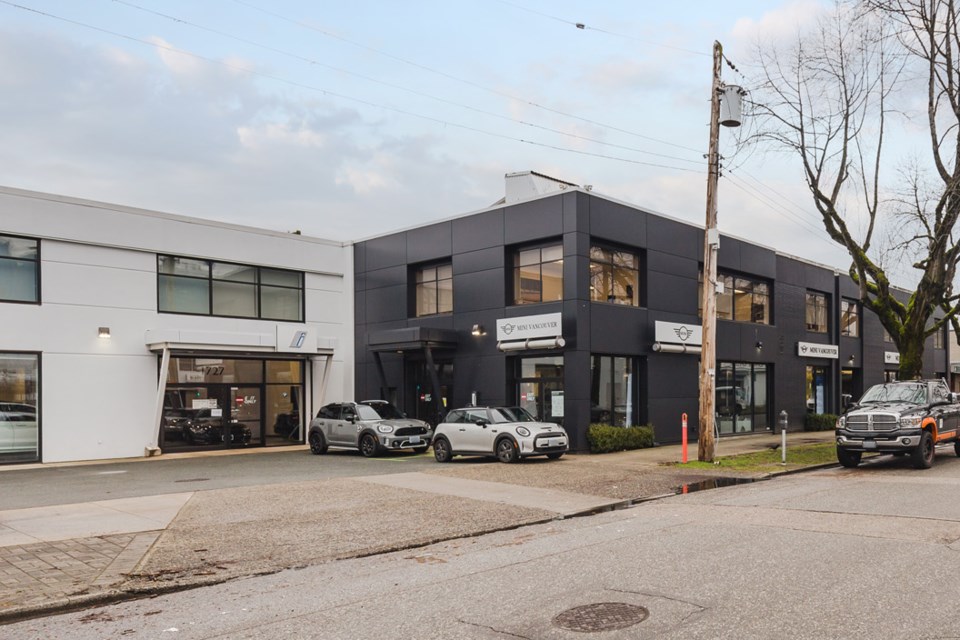Metro Vancouver industrial space is in short supply, helping keep the Lower Mainland the tightest industrial market in North America, and leading to some eye-popping pricing.
The region’s vacancy rate held steady at 0.5 per cent in the first quarter, unchanged from the final quarter of 2021, according to Avison Young, clinching its claim to having the lowest industrial vacancies in major cities across Canada and the U.S.
Strong demand for a limited supply of space has supported rents and given developers with well-located assets a ready market. Purchases of industrial real estate totaled $605.8 million during the first quarter of 2022, a 25 per cent increase versus a year ago.
The highest price paid per square foot in the quarter was OpenRoad Auto Group’s deal for 1717 and 1727 West 5th Avenue in Vancouver. OpenRoad bought the property from Chateau Canada Trading for more than $1,437 per square foot. Currently home to an auto dealership, the property consists of a 17,400-square-foot building on 0.45 acres with redevelopment potential.
The single largest transaction in the first quarter, Avison Young reports, was Toronto-based Fiera Real Estate Canada’s acquisition of 3100 Production Way in Burnaby from Blackwood Partners for $185 million. The property is 18.7 acres and includes a 431,050-square-foot building. Fiera’s industrial investments are backed by a $370 million fund that targets a 4 to 6 per cent annual return.
In May, Nicola Wealth Real Estate and PC Urban Properties paid $24 million in an Avison Young-brokered deal for 3.4 acres of industrial land in Coquitlam.
High pricing and the short supply of space are creating headwinds for companies needing space.
“There will be no pressure release for the Metro Vancouver industrial market any time soon,” the report states. “Some groups will likely be pushed out of the market completely and look to other parts of Canada to fulfill their requirements.”
Avison Young notes that some Metro Vancouver users have already begin to seek space in secondary and tertiary markets on Vancouver Island, in the Okanagan Valley and even further east.
“In those markets, traditional developments have comprised smaller buildings with at-grade loading capabilities,” the report states. “But developers are now showing more desire to acquire land and build mid-sized and large product for distribution purposes.”



